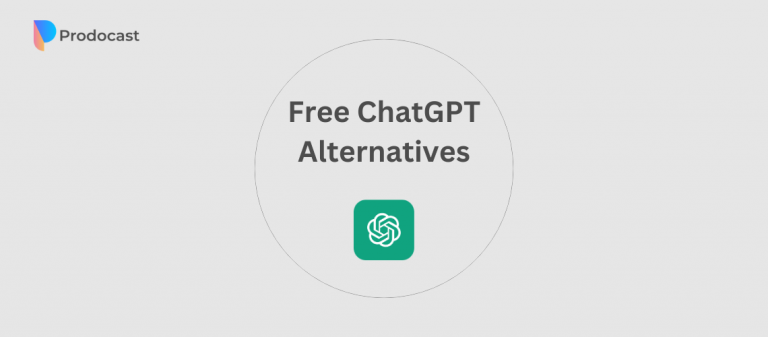In the fast-paced digital landscape of 2024, content creation has become essential for businesses and creators alike. With the rise of artificial intelligence (AI), the way we approach content has transformed significantly. AI tools not only streamline the writing process but also enhance creativity, optimize for SEO, and boost productivity. This guide explores the 12 best AI content creation tools in 2024, offering insights into their features, benefits, and ideal use cases.
The Evolution of AI in Content Creation
AI in content creation has come a long way. Initially, these tools focused on basic text generation, but today they offer advanced features like real-time SEO optimization, tone adjustments, and predictive analytics. This evolution has made AI an indispensable ally for marketers, writers, and businesses, enabling them to produce high-quality content efficiently.
Why Use AI Content Creation Tools?
AI tools are revolutionizing the content creation process by:
- Saving Time: Automating repetitive tasks and speeding up content generation.
- Enhancing Creativity: Providing suggestions and variations to enrich content.
- Optimizing for SEO: Improving search engine rankings with real-time recommendations.
- Boosting Engagement: Tailoring content to audience preferences through data analysis.
Criteria for Selection
To select the best AI content creation tools, we considered:
- Ease of Use: User-friendly interfaces for both beginners and experienced users.
- Features: Range of functionalities like content generation, SEO optimization, grammar checking, and more.
- Pricing: Affordability and value for money.
- Integration: Compatibility with other tools and platforms.
- Use Cases: Suitability for various content types (e.g., blogs, social media, websites).
The 12 Best AI Content Creation Tools in 2024
Comparison Table
| Tool | Key Features | Pros | Cons | Pricing | Best Use Cases |
| Jasper | Multiple templates, SEO | High-quality output | Pricey premium features | $29/month | Blogs, ads, social media |
| Copy.ai | Templates, brainstorming | Affordable, quick | Limited long-form | $36/month | Social media, emails |
| Writesonic | SEO optimizer, templates | Fast generation | Editing needed | $19/month | Blogs, landing pages |
| Surfer SEO | Real-time SEO optimization | Excellent SEO tools | Complex interface | $59/month | SEO content, blogs |
| Grammarly | Grammar check, plagiarism | Comprehensive assistance | Expensive premium | $12/month | Blogs, emails, academia |
| Frase | Briefs, SEO tools | Great for research | Learning curve | $14.99/month | Strategy, blogs, SEO |
| Rytr | Templates, SEO tools | Affordable | Limited features | $9/month | Blogs, emails, social media |
| Anyword | Predictive analytics | Data-driven content | Higher pricing tiers | $24/month | Ads, social media |
| QuillBot | Paraphrasing, summarizer | Easy to use | Limited scope | $9.95/month | Academia, rewriting |
| Wordtune | Rewriting suggestions | User-friendly | Limited beyond rewriting | $9.99/month | Emails, reports, academia |
| CopySmith | Bulk generation, templates | Good for e-commerce | Focused on marketing copy | $19/month | Products, ads, social media |
| Outranking | SEO tools, writing assistant | Great for SEO content | Higher learning curve | $79/month | SEO, blogs, content briefs |
Here are the top 12 AI content creation tools that are making waves in 2024:
1. Jasper
Overview: Formerly known as Jarvis, Jasper is a versatile AI content creation tool that excels in generating diverse content types, from blog posts to marketing copy.
- Key Features:
- Multiple templates for various content formats.
- Integration with Surfer SEO for optimized content.
- Collaboration features for teams.
- Pros:
- Intuitive interface.
- High-quality output.
- Regular feature updates.
- Cons:
- Premium features can be pricey.
- Pricing: Starting at $29/month.
- Ideal Use Cases: Blog writing, ad copy, social media content.
User Experience: Many users praise Jasper for its ability to understand context and generate human-like text, making it feel like a real writing assistant.
Case Study: A digital marketing agency used Jasper to automate social media content, reducing their workload by 50% while maintaining engagement.
2. Copy.ai
Overview: Copy.ai focuses on making content creation fast and enjoyable. It’s perfect for generating marketing copy and social media posts.
- Key Features:
- Numerous templates for various content types.
- Creative brainstorming tools.
- Language options for global content.
- Pros:
- Easy to use.
- Affordable.
- Quick content generation.
- Cons:
- Limited capabilities for long-form content.
- Pricing: Free plan available; Pro starts at $36/month.
- Ideal Use Cases: Social media posts, email campaigns, product descriptions.
User Experience: Users love the tool’s ability to quickly generate creative ideas, making it a favorite for brainstorming sessions.
Tips: Utilize the brainstorming tools to explore multiple content angles, enhancing your creativity.
3. Writesonic
Overview: Writesonic is tailored for marketers and entrepreneurs who need compelling content quickly. It leverages GPT-3 technology for high-quality text.
- Key Features:
- AI-driven writing assistant.
- SEO optimizer.
- Customizable templates.
- Pros:
- Fast content generation.
- Suitable for both short and long-form content.
- Cons:
- May require some editing for accuracy.
- Pricing: Starting at $19/month.
- Ideal Use Cases: Blog posts, landing pages, product descriptions.
Case Study: An e-commerce site used Writesonic to create product descriptions, improving conversion rates by 30%.
Tips: Experiment with different templates to discover the most effective ones for your content type.
4. Surfer SEO
Overview: Surfer SEO is not just an AI writing tool; it’s an all-in-one SEO platform that optimizes your content using real-time data.
- Key Features:
- Content editor with real-time optimization.
- Keyword research tools.
- Competitor analysis.
- Pros:
- Excellent SEO capabilities.
- Integrates with tools like Jasper.
- Cons:
- More complex interface.
- Pricing: Starting at $59/month.
- Ideal Use Cases: SEO-focused content, blog posts, website content.
User Experience: Users appreciate its detailed SEO suggestions, which help improve their content’s ranking potential.
Tips: Use Surfer SEO in conjunction with Jasper to create well-optimized, high-quality content.
5. Grammarly
Overview: Grammarly is a staple for writers, offering grammar and spelling checks, style and tone suggestions, and a plagiarism checker.
- Key Features:
- Real-time grammar and spell check.
- Style and clarity suggestions.
- Plagiarism checker.
- Pros:
- Easy to use.
- Comprehensive writing assistance.
- Cons:
- Premium version can be costly.
- Pricing: Free version available; Premium starts at $12/month.
- Ideal Use Cases: Blog posts, emails, academic writing.
User Experience: Users find Grammarly indispensable for polishing their writing and maintaining professionalism.
Case Study: A university student improved their essay grades by consistently using Grammarly for editing.
6. Frase
Overview: Frase focuses on content optimization and research, making it a valuable tool for SEO and content strategy.
- Key Features:
- Content brief generation.
- SEO optimization tools.
- AI writing assistant.
- Pros:
- Excellent for research and planning.
- Integrates with other tools.
- Cons:
- Steeper learning curve for beginners.
- Pricing: Starting at $14.99/month.
- Ideal Use Cases: Content strategy, blog writing, SEO optimization.
User Experience: Users appreciate Frase’s ability to streamline the research phase, saving significant time in content planning.
Tips: Leverage the content brief generation feature to quickly outline and structure your articles.
7. Rytr
Overview: Rytr is an affordable AI writing assistant that supports various content formats, making it suitable for bloggers and marketers.
- Key Features:
- Multiple content generation templates.
- Language and tone options.
- SEO tools.
- Pros:
- Budget-friendly.
- User-friendly.
- Cons:
- Limited features compared to competitors.
- Pricing: Free plan available; Premium starts at $9/month.
- Ideal Use Cases: Blog posts, emails, social media content.
User Experience: Users appreciate Rytr’s simplicity and cost-effectiveness, making it a great entry-level tool.
Tips: Experiment with tone options to find the best voice for your brand.
8. Anyword
Overview: Anyword specializes in predictive performance analytics, helping you create content that resonates with your audience.
- Key Features:
- Predictive performance score.
- Multiple content formats.
- Integration with social media platforms.
- Pros:
- Data-driven content creation.
- Focus on marketing copy.
- Cons:
- Higher pricing tiers.
- Pricing: Starting at $24/month.
- Ideal Use Cases: Ad copy, social media posts, email campaigns.
User Experience: Users appreciate the insights provided by the predictive performance score, helping them create more effective content.
Case Study: A marketing team improved ad performance by 20% by using Anyword’s predictive analytics to tailor their messaging.
9. QuillBot
Overview: QuillBot is a paraphrasing tool that enhances writing clarity and rephrases content efficiently.
- Key Features:
- Paraphrasing modes.
- Grammar checker.
- Summarizer tool.
- Pros:
- Easy to use.
- Helpful for rephrasing and summarizing.
- Cons:
- Limited to paraphrasing and summarizing.
- Pricing: Free version available; Premium starts at $9.95/month.
- Ideal Use Cases: Academic writing, content rewriting, summarization.
User Experience: Students and professionals alike find QuillBot valuable for rephrasing complex text into more understandable language.
Tips: Use the summarizer tool to condense lengthy articles into key points.
10. Wordtune
Overview: Wordtune enhances your writing by suggesting different ways to phrase your text, focusing on clarity and engagement.
- Key Features:
- Rewriting suggestions.
- Tone and style adjustments.
- Integration with popular writing platforms.
- Pros:
- Real-time writing enhancement.
- User-friendly.
- Cons:
- Limited features beyond rewriting.
- Pricing: Free version available; Premium starts at $9.99/month.
- Ideal Use Cases: Emails, reports, academic writing.
User Experience: Users enjoy Wordtune’s ability to provide multiple phrasing options, enhancing their writing style.
Tips: Use Wordtune to refine the tone of your emails, making them more professional or casual as needed.
11. CopySmith
Overview: CopySmith is designed for e-commerce and marketing teams, offering a variety of tools for generating high-converting copy.
- Key Features:
- Content generation templates.
- Bulk content generation.
- Collaboration tools.
- Pros:
- Excellent for bulk content needs.
- Strong focus on e-commerce.
- Cons:
- Primarily focused on marketing copy.
- Pricing: Starting at $19/month.
- Ideal Use Cases: Product descriptions, ad copy, social media content.
User Experience: E-commerce businesses find CopySmith invaluable for generating large volumes of product descriptions quickly.
Tips: Utilize the bulk generation feature to streamline content creation for extensive product catalogs.
12. Outranking
Overview: Outranking combines AI writing with robust SEO tools, making it perfect for creating content that ranks well in search engines.
- Key Features:
- Content optimization suggestions.
- AI-driven writing assistant.
- SERP analysis.
- Pros:
- Excellent for SEO-focused content.
- Comprehensive research tools.
- Cons:
- Higher learning curve.
- Pricing: Starting at $79/month.
- Ideal Use Cases: SEO content, blog posts, content briefs.
User Experience: Users benefit from the detailed SEO recommendations, which significantly improve their content’s search rankings.
Tips: Take advantage of the SERP analysis feature to understand competitor strategies and improve your content’s competitiveness.
The Future of AI in Content Creation
As AI continues to evolve, its role in content creation will expand. Future trends may include:
- Increased Personalization: AI will enable even more tailored content based on user preferences and behavior.
- Voice and Video Content: AI tools may expand beyond text to assist in creating high-quality audio and video content.
- Deeper SEO Integration: AI tools will likely offer even more sophisticated SEO capabilities, integrating directly with search engines.
Ethical Considerations
While AI tools offer numerous benefits, ethical considerations must be addressed:
- Job Displacement: Concerns about AI replacing human writers are valid, though these tools are meant to assist rather than replace.
- Content Authenticity: Maintaining authenticity and originality in content creation is crucial, and AI-generated content should be closely monitored.
Conclusion
The right AI content creation tool can transform your workflow, boost productivity, and elevate your content quality. Whether you’re crafting blog posts, social media content, or SEO-focused articles, these tools offer a variety of features tailored to different needs. Experimenting with different tools will help you find the perfect fit for your content strategy.
Final Recommendations
- For Beginners: Tools like Rytr and Copy.ai are user-friendly and budget-friendly, making them great starting points.
- For SEO Focus: Surfer SEO and Outranking offer advanced optimization features.
- For Creativity: Jasper and Writesonic provide diverse templates and creative prompts.
Find all Content Management Software(CMS) here
FAQs
- Are AI content creation tools replacing human writers?
No, AI tools are designed to assist writers, not replace them. They enhance creativity and efficiency, but human oversight is crucial for quality and context. - Can AI tools improve SEO?
Yes, many AI tools include SEO optimization features that help improve your content’s visibility and ranking on search engines. - Are these tools suitable for beginners?
Absolutely! Many tools are user-friendly and come with tutorials, making them accessible for beginners and experienced users alike. - How do I choose the right tool for my needs?
Consider your content goals, budget, and the specific features you need. Trying out free versions or trials can also help you make an informed decision. - What are common challenges with AI content tools?
Challenges include ensuring content originality, managing tool costs, and understanding tool interfaces. Overcoming these involves selecting the right tool, using it consistently, and refining your content manually. - How do AI tools compare to traditional content creation?
AI tools offer speed and efficiency, while traditional methods may provide deeper insights and creativity. A combination of both often yields the best results.
Encouragement to Experiment
Don’t hesitate to try out a few of these AI content creation tools and discover which ones best fit your workflow. The right tool can take your content to the next level, enhancing both quality and engagement.



